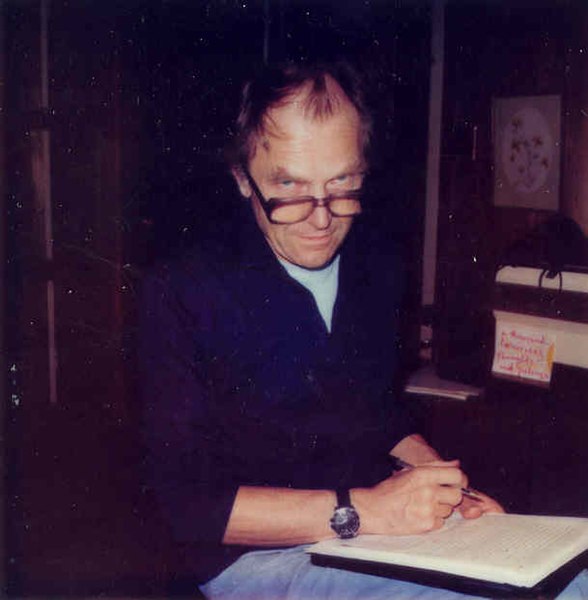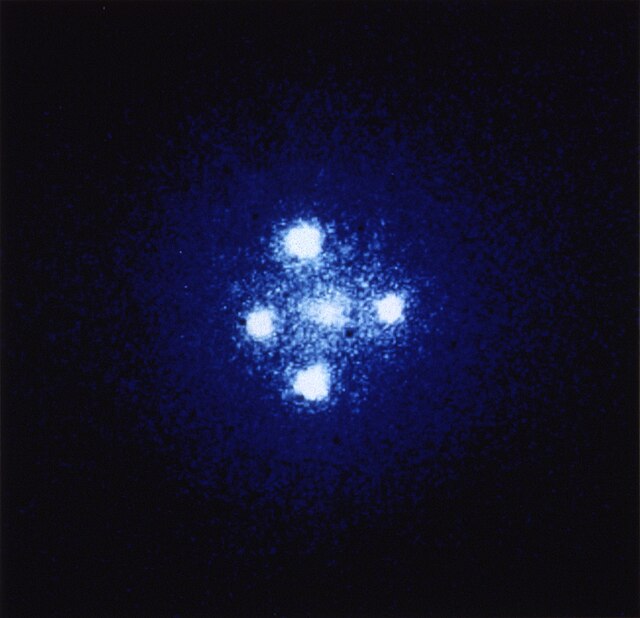Paul Karl Feyerabend was an Austrian philosopher best known for his work in the philosophy of science. He started his academic career as lecturer in the philosophy of science at the University of Bristol (1955–1958); afterwards, he moved to the University of California, Berkeley, where he taught for three decades (1958–1989). At various points in his life, he held joint appointments at the University College London (1967–1970), the London School of Economics (1967), the FU Berlin (1968), Yale University (1969), the University of Auckland, the University of Sussex (1974), and, finally, the ETH Zurich (1980–1990). He gave lectures and lecture series at the University of Minnesota (1958-1962), Stanford University (1967), the University of Kassel (1977) and the University of Trento (1992).
Feyerabend at Berkeley
Feyerabend with his friend Roy Edgley
Feyerabend later in life. Photograph by Grazia Borrini-Feyerabend
Feyerabend, Kuhn, Hoyningen-Huene and colleagues after a seminar at ETH Zurich
Philosophy of science is the branch of philosophy concerned with the foundations, methods, and implications of science. Amongst its central questions are the difference between science and non-science, the reliability of scientific theories, and the ultimate purpose and meaning of science as a human endeavour. Philosophy of science focuses on metaphysical, epistemic and semantic aspects of scientific practice, and overlaps with metaphysics, ontology, logic, and epistemology, for example, when it explores the relationship between science and the concept of truth. Philosophy of science is both a theoretical and empirical discipline, relying on philosophical theorising as well as meta-studies of scientific practice. Ethical issues such as bioethics and scientific misconduct are often considered ethics or science studies rather than the philosophy of science.
In formulating 'the problem of induction', David Hume devised one of the most pervasive puzzles in the philosophy of science.
Karl Popper in the 1980s. Popper is credited with formulating 'the demarcation problem', which considers the question of how we distinguish between science and pseudoscience.
The expectations chickens might form about farmer behavior illustrate the "problem of induction".
Seen through a telescope, the Einstein cross seems to provide evidence for five different objects, but this observation is theory-laden. If we assume the theory of general relativity, the image only provides evidence for two objects.








